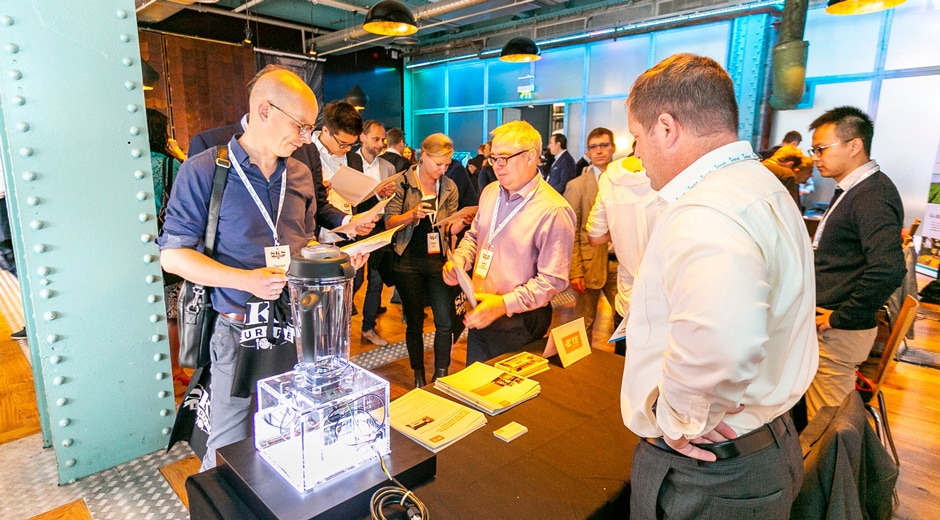On June 11-12, close to 300 leaders, innovators and startups in the food tech community convened to explore the latest technology within the food ecosystem, when the first-ever Smart Kitchen Summit Europe took place in Dublin, Ireland. Here are the main takeaways from the summit and the trends that will reinvent the consumer journey in the kitchen.
Electrolux was the headline sponsor of Smart Kitchen Summit Europe (SKS Europe) in Dublin, which included discussions and speeches as well as startups showcasing their new innovations. Industries and businesses impacted by technology and IoT when it comes to kitchen appliances, grocery, food delivery, food platforms and cooking trends gathered to share ideas on the future of cooking and food.
David Cronström, Head of Strategy and Innovation at Electrolux and Niels Munksgaard, Marketing Director for Kitchen products in EMEA, were panelists speaking about how Electrolux is exploring new ways of simplifying and personalizing the consumer cooking experience through assisted cooking, new services and partnerships. Together with the founder of the Smart Kitchen Summit, Michael Wolf, they stressed the potential that new technology and partnerships has in creating an ecosystem that can guide consumers smoothly through the whole cooking journey.
At the summit, eight startups were chosen from over fifty submissions in a competition to showcase their most innovative ideas and products that can reinvent cooking, food and the kitchen. Berlin-based startup Mitte, won the competition after showcasing its device that offers healthy and personalized water at home.
The Smart Kitchen Summit can be summarized in three major trends that the food tech community is talking about and that will be big in the future:
1. Personalized cooking journey.
The biggest shift in the kitchen will be personalization, where cooking and meals are adjusted to the needs and choices of each individual. Combining appliances with other assets, like apps or connected voice assistants, can inspire and easily guide consumers to cook meals to their own taste, achieve perfect results and boost their confidence into trying new meals. This change is driven by the increasing demand for more flexibility in when and where consumers eat, increasing consumer demand for greater cooking experiences as well as the constant exploration of new flavors, cooking techniques and new recipes.
2. Less complex and more seamless.
According to a study by Google, consumers generally google food inspiration and recipes two to three times a week, and the most difficult part in the kitchen for most consumers is to decide what to cook. Kitchen appliances that work seamlessly together with other devices and are connected with online food platforms have enormous potential to simplify and save time in the kitchen by tailoring recipes, guidance and cooking programs. New technology like assisted cooking that guides the consumer through the whole cooking journey – from inspiration to shopping and cooking – will boost the personalization trend and create better consumer experiences.
3. Sustainable cooking.
Consumers’ interest in eating and cooking healthy and nutritious food is growing. At the same time, awareness of food safety and the importance of combatting food waste is growing. New technology has great potential to tackle these issues. Several ideas and innovations to help the consumer eat more healthy and to simplify the reduction of food waste, emerged at the Summit. For example, apps that guide consumers to cook meals on what they have available in their fridge so that groceries don’t end up in the bin.


